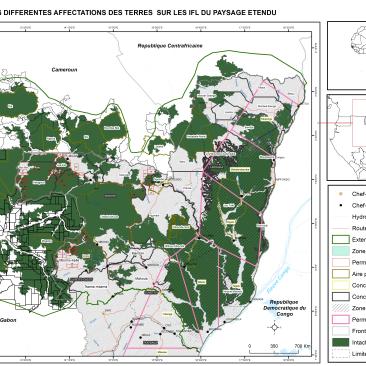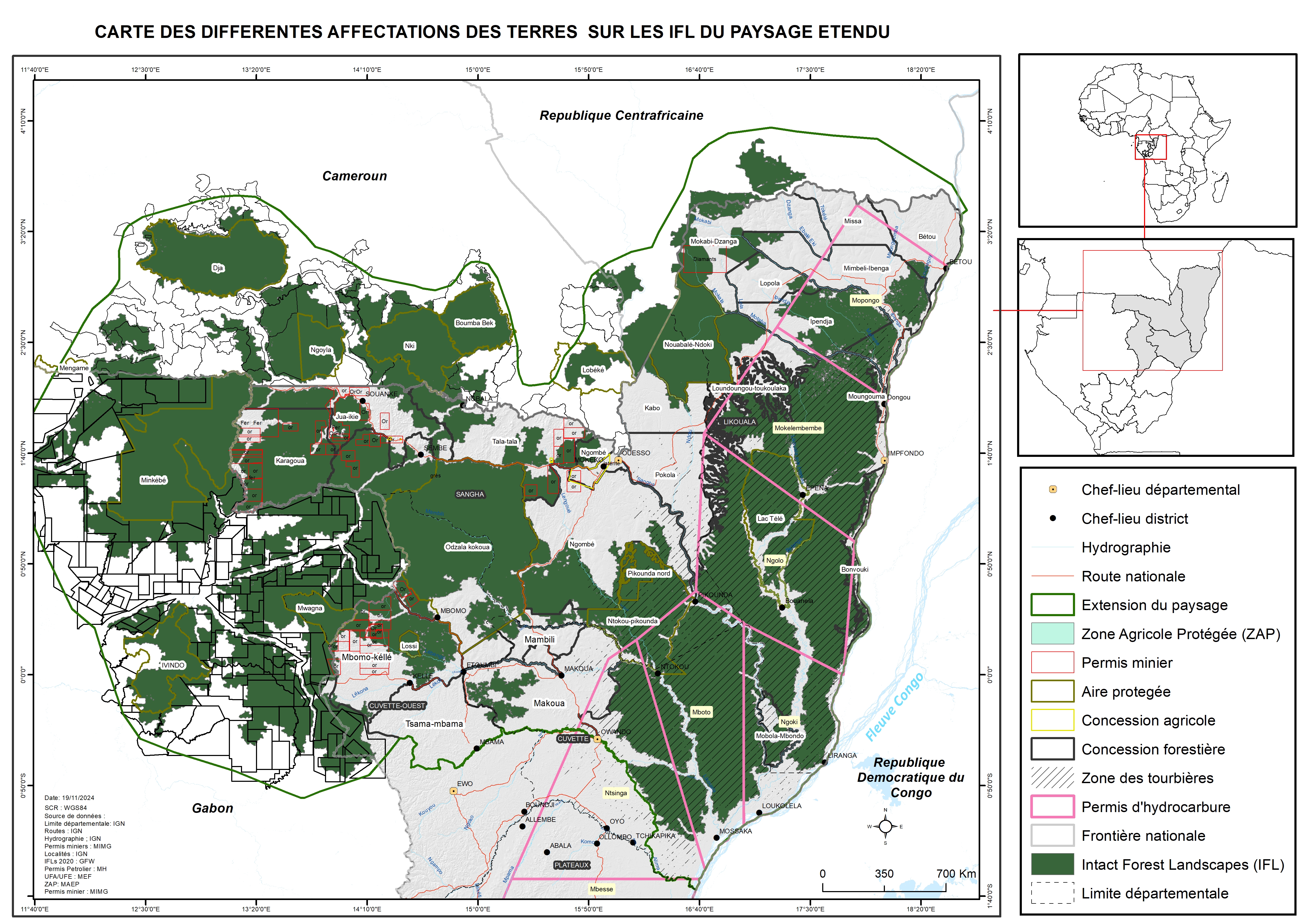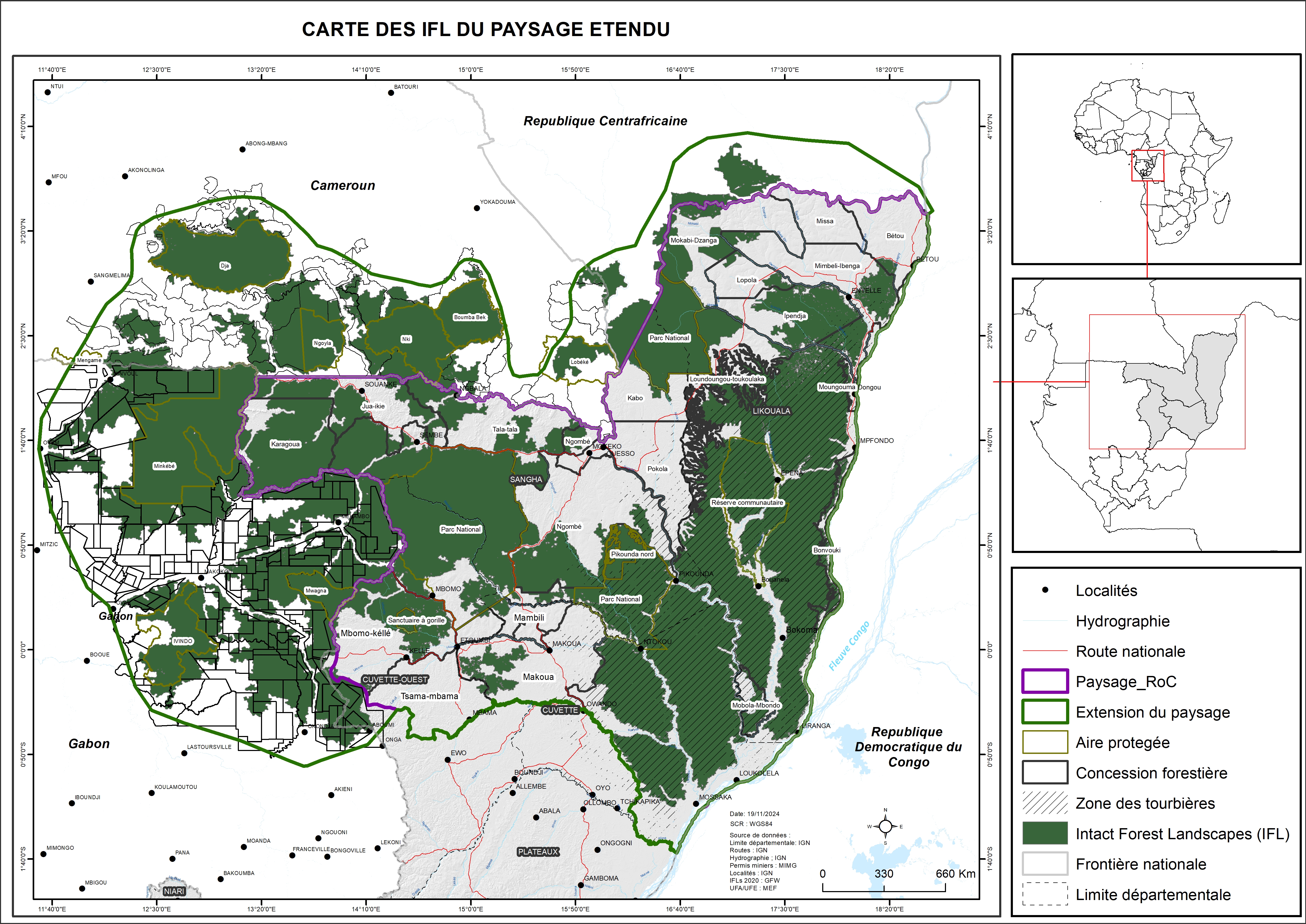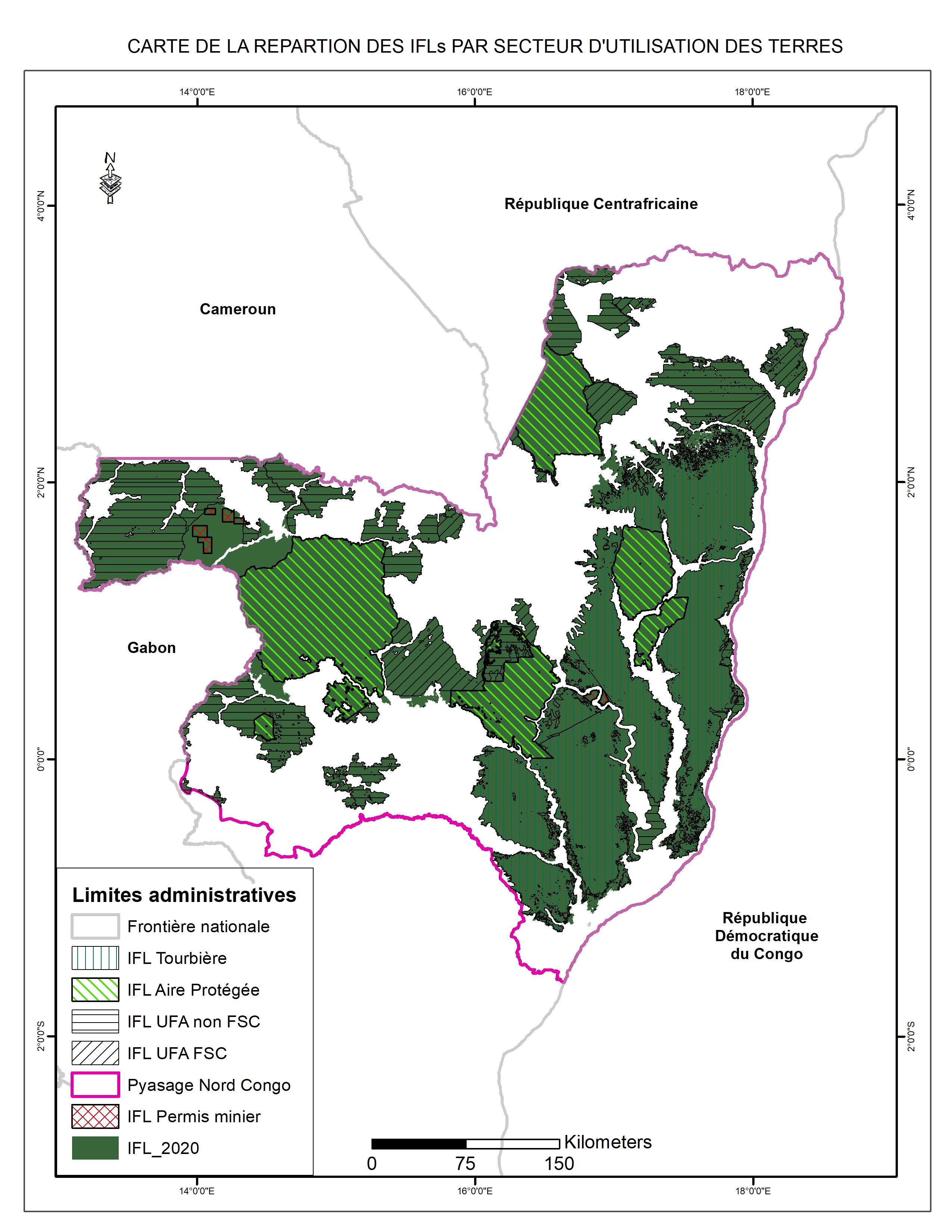
). This motion, titled "Using landscape-scale approaches adapted to local conditions and strengthening standards development groups to improve the protection of intact forest landscapes," addresses deficiencies in the current FSC framework for conserving High Conservation Value 2 (HCV2), with a specific focus on IFLs. The primary objective is to broaden the scope of FSC's conservation standards and systems for IFLs by incorporating a landscape approach that:
- Addresses IFL conservation holistically at the landscape level, acknowledging that Forest Management Units (FMUs) are interdependent components within this broader system.
- Enhances IFL identification and conservation measures by integrating on-the-ground environmental, social, and socio-economic studies.

Pilot Project Implementation in the Republic of Congo
To implement Motion 23, a pilot project has been launched in the Republic of Congo. This initiative leverages the sphere of influence concept, compelling certified companies to actively support IFL protection beyond their concession boundaries. This involves adopting a broader perspective of the forest landscape and fostering collaboration with various local and national stakeholders.
Landscape Identification and Delimitation Methodology
The initial phase of this project involved the identification and delimitation of the target landscape. In the Republic of Congo, this process strictly adhered to the procedures and guidelines established by the FSC.
A Geographic Information System (GIS) was employed for landscape identification and delimitation, based on several key criteria. These included: ecological connectivity, IFL distribution, the presence of indigenous populations, and the existence of both FSC-certified and uncertified forest concessions, as well as protected areas. The ecological, social, and economic significance of the landscape was also a critical consideration.
Identified Landscape and Data Sources
Based on these criteria, the North Congo forest mass, also known as the North Congo forest landscape, was selected and delimited for the pilot project. It represents the largest forest massif in Congo.

Mapping data were sourced from:
- Global Forest Watch (GFW) for IFLs.
- The Ministry of Forest Economy (MEF) for forest concessions and protected areas.
- The Ministry of Mines and Geology (MIMG) for mining permits.
- The Ministry of Agriculture, Livestock, and Fisheries (MAEP) for Protected Agricultural Zones.
- The Ministry of Hydrocarbons (MH) and the Ministry of Spatial Planning, Infrastructure, and Road Maintenance (MATIER) for oil permits.
These represent the most current and official datasets utilized within the Republic of Congo.
Geographic Scope and Characteristics
The overall landscape to be analyzed under the Motion 23/2022 pilot project comprises the North Congo forest landscape, extended to include connected IFLs in neighboring countries: Cameroon, the Central African Republic (CAR), and Gabon. Landscape delimitation also integrated anthropological elements, socioeconomic aspects, and administrative considerations.

The North Congo forest landscape is one of the country's three primary forest masses, alongside those of Chaillu and Mayombe. It is a vast, dense humid forest region integral to the Congo Basin. This area spans the departments of Sangha, Likouala, Cuvette, and Cuvette-Ouest within Congo, and its boundaries were extended into neighboring countries based on IFL connectivity.
Administratively, this landscape encompasses forest portions in the Republic of Cameroon, the Republic of Gabon, and the Republic of Congo. Within the Republic of Congo, it fully covers the Sangha and Likouala Departments, and partially covers the Cuvette, Cuvette-Ouest, and Congo-Oubangui Departments. The Democratic Republic of Congo was not included despite its extensive border IFLs due to low connectivity with those in the Republic of Congo.
Note: In case you need the GIS layer of the map of the Northern Congo Landscape, please reach out to: fscafrica@fsc.org
